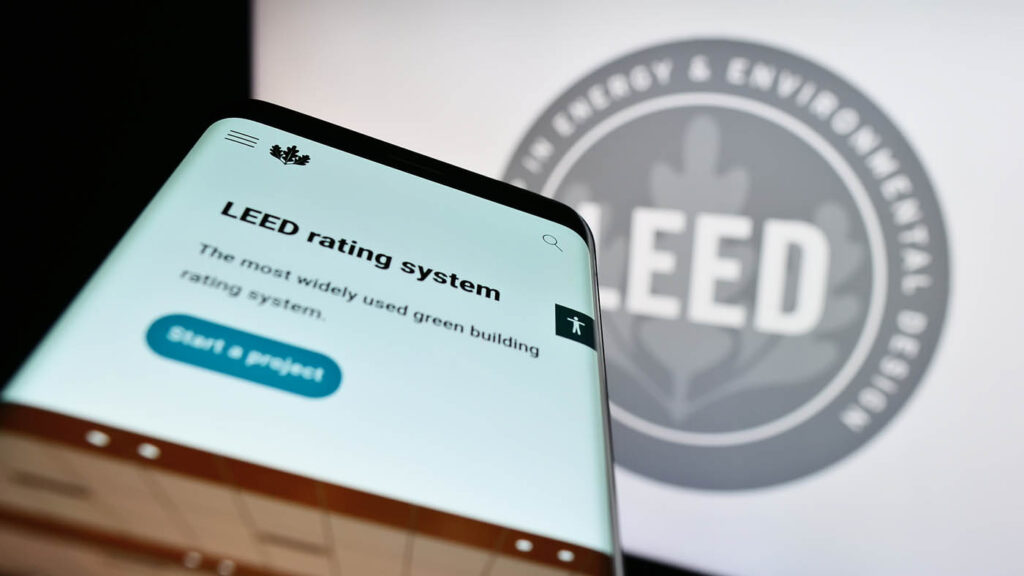Environmental certifications are of great importance to plant and production managers of a factory. Their value lies in the fact that they endorse the company’s commitment to sustainability and also meet consumer demand for responsible business practices.
Achieve sustainability and enhance your reputation with environmental certifications. Discover the process step by step.
The importance of obtaining environmental certifications is growing because, in addition to benefiting the environment, they strengthen the brand image with shareholders and customers, who see how sustainability is an essential pillar of the company’s philosophy.
Environmental certifications such as ISO 14001 or LEED are some of the most valued in industrial environments by providing a structured framework for achieving industrial sustainability goals set by company management bodies. These environmental certifications allow the Smart Factory to be a Sustainable Smart Factory by complying with environmental regulations for industries, improving environmental management in manufacturing, obtaining a reduction of the product carbon footprint or establish a correct environmental corporate responsibility strategy.
What are industry certifications?
But what are industrial certifications and why are they important for the development of a factory? This is a set of recognitions granted to companies by a series of independent and accredited certifying bodies (such as ISO, LEED or TÜV) that are responsible for verifying that the criteria established for each type of certification have been met and that they demonstrate the the company’s commitment to sustainable practices.
These environmental certifications may vary in their requirements, but mainly focus on the industrial organization adopting measures to reduce the consumption of natural resources and minimize waste and CO2 emissions, as well as committing to sustainable innovation. sustainable innovation to improve, among other things, its energy efficiency.

How to achieve certification
Achieving industrial energy certification requires a process in which the company must take a series of steps, including the performance of environmental audits in the industry. Therefore, it is necessary to start with an internal audit that shows the energy efficiency in production.
In this environmental audit, the company will conduct an analysis of its practices and processes to identify areas for improvement in terms of sustainability. A platform such as GreenwAIs by aggity makes it possible to discover which processes can be improved to achieve a more sustainable factory.
Once this audit has been carried out, it is necessary to analyze the environmental certification to be achieved. At this point it is important because certification is not the same. ISO 14001more focused on the sustainability of a plant’s activities than on the sustainability of its operations. LEED certification for factorieswhich places more emphasis on energy efficiency, the responsible use of water or the materials and resources used by the company to carry out its manufacturing processes.
Planning and commitment
Once these two tasks have been completed, it is necessary to establish a series of clear objectives. These sustainability objectives must be realistic and achievable because, if they are not, it will be impossible to achieve certification, which entails a significant economic cost.
From here and with the information obtained from the environmental audit, the organization will be able to implement the measures focused on achieving the certification it has chosen. Some of these measures may include the incorporation of circular economy processes in the industry; establishing procedures for saving energy or water; minimizing the carbon footprint o to bet on the implementation of green technologies in their production processes.
After all these actions have been carried out, it is time to prepare to apply for certification. To this end, the organization undergoes an external audit by an independent certifying body. During this process, the certifier will verify that the requirements are met and if so, certification will be granted.

Continuous improvement
Obtaining any certification does not mean that the organization stops its sustainability strategy. The sustainable automation The use of renewable energies for the industry, ensuring the sustainability of processes or implementing strategies for efficient waste management are just a few of the improvement actions that can be further implemented.
In fact, commitment to continuous improvement in environmental management is a key element in achieving a fully sustainable industry, with less environmental impact and optimized production processes that are more efficient, both from an economic and environmental point of view.





